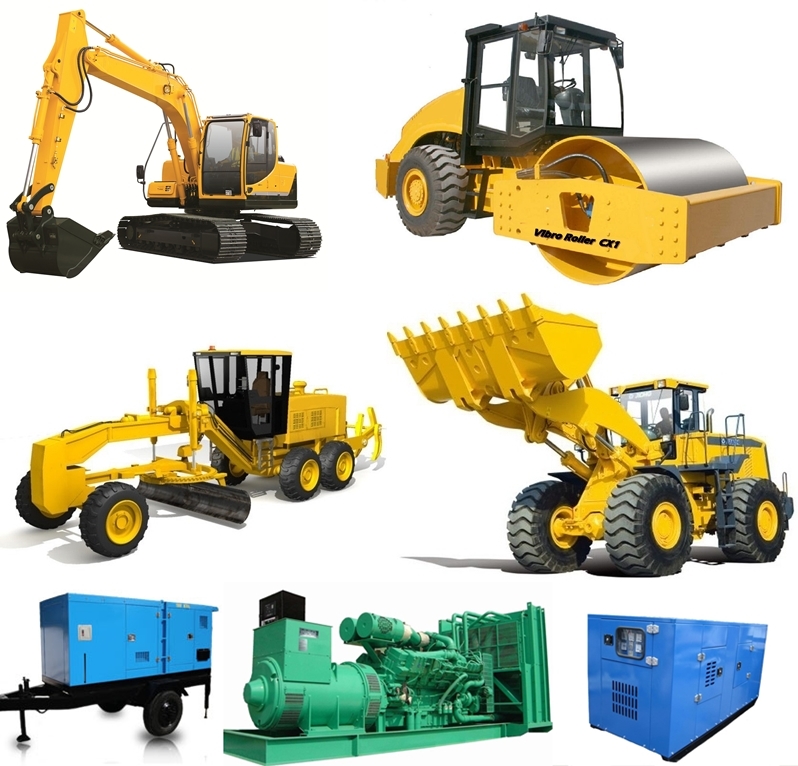Equipment Rental Company: Your Resource for All Types of Equipment
Equipment Rental Company: Your Resource for All Types of Equipment
Blog Article
Maximize Your Budget by Comprehending the Costs Connected With Building And Construction Devices Leasings
Understanding the complete scope of expenses connected with building and construction tools rentals is important for maximizing your spending plan. What methods can be used to successfully handle these prices and make certain a more reliable rental experience?
Review of Rental Costs
When taking into consideration building and construction equipment services, recognizing the connected expenses is critical for reliable budgeting and task planning. Rental costs can differ significantly based on a number of elements, consisting of tools type, duration of rental, and location. The preliminary rental cost usually mirrors the tools's market need and its connected functional capacities, affecting the general cost.
Along with the base rental price, secondary prices might occur, such as transportation charges, fuel surcharges, and upkeep costs. It is important to account for these additional expenditures to properly analyze the complete expense of renting equipment. Moreover, the rental period can influence prices; longer leasings may get reduced rates, while short-term services may incur greater everyday fees.

Break Down of Rental Rates
An extensive understanding of rental rates is important for professionals and job supervisors aiming to optimize their budgets. Rental prices for building and construction equipment normally include a number of components, including base prices, time-based fees, and usage costs.
Base rates are the core charges associated with the rental of the tools, commonly figured out by the type and size of the machinery. These prices can vary dramatically, affected by elements such as equipment need, availability, and local market fads. Time-based fees, which may be daily, weekly, or monthly, offer to fit different project timelines and rental periods.
Furthermore, rental rates might include use costs, which apply when tools is used past a defined threshold, making certain that the rental business can account for damage. Seasonal demand variations can likewise affect rental prices, with peak building seasons normally commanding greater prices.
Additionally, comprehending the rental firm's policies regarding maintenance and insurance can supply more insight right into the overall expense framework. By evaluating these components, contractors can make educated choices, guaranteeing the option of rental equipment straightens with both project needs and budget restrictions.
Extra Charges to Take Into Consideration
Understanding the ins and outs of extra costs is critical for contractors to manage their general service costs efficiently. Beyond the common rental prices, numerous supplementary fees can substantially affect the overall price of devices service. These charges commonly consist of shipment and pick-up charges, which can vary based upon range and logistics entailed in transporting the tools to and from the task site.
In addition, some rental firms might enforce fuel surcharges if the equipment is returned with less fuel than when rented out. It is additionally crucial to understand possible cleaning fees, specifically for customized devices that requires extensive maintenance after usage.

Extensively evaluating the rental agreement and making clear these extra fees ahead of time can assist professionals avoid unanticipated expenses and ensure that budgets continue to be intact throughout the task lifecycle.
Repair And Maintenance Expenses
Routine upkeep and repair expenditures are typically overlooked variables that can substantially influence the general price of building tools leasings. When renting devices, it is crucial to think about not just the rental fees however also the possible costs related to maintaining the machinery in ideal operating problem.
Many rental firms include fundamental upkeep as part of the rental contract; nevertheless, much more extensive repair work or unforeseen failures can lead to additional costs. It's vital to evaluate the rental contract very carefully to recognize what upkeep services are covered and what obligations drop on the occupant.
Furthermore, equipment that is not well-maintained can result in inadequacies on the job site, potentially enhancing and triggering hold-ups task prices. To minimize these threats, it is advisable to conduct regular evaluations and preserve open interaction with the rental service provider concerning any type of concerns that arise throughout use.
Insurance Policy and Responsibility Prices
Insurance and liability costs are critical parts that can significantly influence the overall expense of building and construction tools leasings (construction equipment rentals). These costs make certain used heavy machinery that both the rental company and the customer are secured from prospective financial losses emerging from crashes, damages, or burglary throughout the rental period

Additionally, clients should recognize any deductibles or exclusions in the insurance policy, as these can influence prospective out-of-pocket expenditures. Understanding the terms and problems of any insurance policy coverage is essential to avoid unforeseen costs. Eventually, budgeting for insurance policy and liability expenditures can help make sure a smoother rental experience and protect against monetary threats connected with construction jobs.
Verdict
To conclude, a detailed understanding of the prices related to building tools rentals is necessary for reliable budget management. By examining rental prices, extra costs, upkeep expenses, and insurance people, companies and requirements can lessen unexpected expenditures. This calculated method not just enhances cost-effectiveness but also makes sure that tasks proceed efficiently and successfully. Inevitably, educated decision-making pertaining to equipment services adds to the total success of building and construction undertakings.
Rental expenses can vary significantly based on numerous aspects, consisting of devices kind, duration of leasing, and place (aerial lift rental). The rental duration can affect pricing; longer services might qualify for reduced rates, while short-term leasings might sustain higher day-to-day charges
By carrying out complete research and involving with reputable rental business, contractors can properly browse the complexities of rental rates, ultimately optimizing their financial resources.
Past the conventional rental rates, numerous supplemental costs can considerably influence the total expense of equipment service. Rental companies usually offer responsibility insurance that covers injuries to 3rd events or damage to residential or commercial property, while tools damages insurance can cover the expense of fixings or replacement if the rented tools is damaged.
Report this page